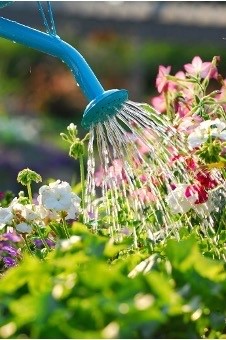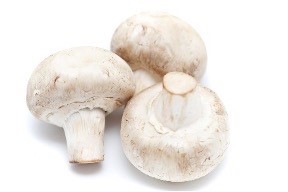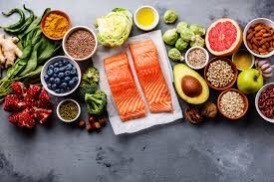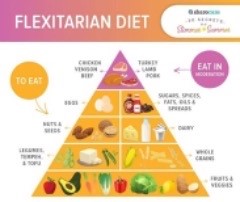Is being Vegan as green as it seems? Or is it creating even more of an impact on the world around us? Join the journey, as I discover the best diet option for you and the planet.
January or Veganuary?
Being Vegan is best for the planet right? That’s the message we seem to hearing from the media. But possibly this is not exactly true. Even though animals have an impressive sized footprint (carbon that is, not their actual feet!) and not eating any animal products reduces that, it doesn’t mean that being Vegan is the best. This may seem a strange claim, so let’s look at the facts.

1 out of the 179 girls in middle school who answered this survey is Vegan. To be clear, this is the only person who is Vegan that answered the survey. However, nine people said that they were considering becoming vegan. So currently my research seems to indicate that the adoption of Veganism is quite low in this school. It doesn’t seem as popular as I expected it to be. Maybe many others are still thinking about it. However, is this the right choice? Read on and this might help you decide on your diet choice.
Vegan alternatives to meat and poultry can use vegetables that are not in season where you live, or don’t even grow in that country without extreme heat. This means that many popular Vegan foods such as avocado and nuts require high fuel miles to reach our tables, which results in the high use of off fossil fuels, often through air miles.
Other examples include popular fruits such as blueberries and strawberries, which can only grow in the summer in the UK are often imported from other countries by boat or plane all year round. Again using off fossil fuels to reach us.
Also, the foods may guzzle up huge amounts of water. Such as avocados. It has been estimated that avocados need between 140 and 272 litres of water to grow per individual fruit. This is very resource intensive, especially as rainfall maybe reducing in some regions due to climate change.
The milk alternative almond milk, can use up to 17 times more water than cows milk which often has far fewer food miles. Almonds also need large amounts of pesticide and fertiliser to help them grow. The fuel miles and water amounts of these vegan favourites mean that there is a high price on the environment for a balanced vegan diet.
Vegetarianism
So Veganism isn’t always as green as it may seem at first. On the other hand, what about being a Vegetarian? Isn’t that better? Well not much. There are generally less alternatives necessary (like almond milk) due to being able to eat eggs and dairy, but there are still fossil fuel hungry produce out there that are popular in the Vegetarian diet.
8 out of the 179 people who answered the survey, said they were Vegetarian. People, when asked why they were vegetarian had three main reasons. They don’t like meat, cruelty to animals or the environment. Although many people think that being vegetarian is the best for the planet, it is not, as many meat alternatives use large amounts of water and pesticides, or emit fossil fuels in growing or being transported.
For example, mushrooms are a commonly used meat substitute. Still, they have a rather large impact. In fact they give off 2.13 to 2.95 kilos of carbon dioxide per mushroom.
Mycoprotien, a meat substitute grown from fungi, has more air related environmental impacts than processing meat. Of course, it uses a small amount of land compared to farming chicken, sheep, cows and pigs, but it releases high amounts of CO2.

More than half of the carbon pollution comes from processing and the energy used for this, but also the fertiliser needed to grow the crop can account for 11% of emissions.
Vegetarians also eat quite a lot of dairy products as alternatives to meat. This does not kill the animal, the animals still exist, taking up land and land to grow the food for the animal, creating a very similar impact to an omnivorous diet.
Omnivorous (meat based diet)
I need to explore the reason to why eating animal products alone are bad for the environment. So, 77% of agricultural land goes to homing and feeding livestock. Animals also produce the fossil fuel, methane, as a waste product.

Then there is deforestation. Industrial meat is the single biggest cause of deforestation globally. The slash and burn method is popular with many farmers to clear large spaces of trees for cattle ranching and to grow industrial animal feed like soya for farms all around the world.
The slash and burn method works the way it sounds; the farmers cut the trees down and then burn them, releasing tons of carbon dioxide.
The deforestation has many bad effects, including the loss of wildlife and biodiversity and their habitats. Due to this, animals have to find other places to live and this will bring them into closer contact with humans which increases the risk of future pandemics (like coronavirus).
Over a quarter of the world’s entire land area is used to graze or grow food for farm animals. And if everyone ate a plant based diet, 75% of the farmland used today would be unnecessary and more would be returned to be wild or parks.
The statistics get crazy with 3 chickens for every one person on the planet. And for every one kilogram of beef produced, 60 tons of CO2 is released. Lamb and mutton seconds that with 25 tons released per kilogram.
80.4% of the people who completed the survey are meat eaters (including Halal, Kosher and Hindi diets). That is 143 out of the 179 people who completed it. This section is very important and relevant for most people who read this and even participating in “Meatless Monday” reduces your carbon footprint by 3.6kg. In fact, if you skipped one serving of beef every week for a year, that would save the same amount of emissions as driving 348 miles in a car.
So eating just meat, definitely is not the best for the planet. Controversially, it may have a similar effect to vegetarianism, on the environment.
Something smells fishy… Pescatarianism
Pescatarianism is commonly misconceived to be where a person only eats fish, although this isn’t the case. Pescatarians only do not eat meat. They can eat animal products, just like a vegetarian, but unlike vegetarians, pescatarians eat fish, so they don’t necessarily need as many meat substitutes.

9 people in the survey mentioned that they are pescatarian. And this might be one of the best diets to have.
A new study has shown that a diet in which the animal protein came from low food chain animals, had nearly as low of an impact as vegan diet.
However, some fish farms produce more greenhouse gases than farming livestock. It all depends on the type of fish. For example, farming one ton of fish uses 8 tons of water but farming shrimp can use up to ten times more water.
Or a 2 acre salmon farm produces up to as much waste as a town of 10,000 people.
So, pescatarianism isn’t the best yet as the waste created, or water used. Lets go onto our final option flexitarianism.
Flexitarian
There were 10 people on the survey who said that they were flexitarian, but is that the best choice? I think so.
The new study (mentioned above) has found that a flexitarian diet has a lower carbon footprint than a vegetarian or meat diet.
Flexitarian means that a person will follow a mainly vegan, vegetarian or pescatarian diet, but still eats meat. The study has taken all major diets from 140 countries and found that eating a two thirds vegan diet is much better for the environment than a pure vegetarian or vegan diet.
The study also found that cattle, sheep and goat meat are the most polluting, but dairy products are not much better, as the animals still exist to emit methane, to take up land and to need land grown for food.
Cutting down dairy and increasing on vegetables with meat once a day is better for the environment is better than a Vegetarian diet.
The study also mentions that an insect based diet would be beneficial for the environment. Yet, I’m not sure many people would be up for that.
So is being veggie as green as it seems? No, not really, as the meat substitutes can have a large environmental impact. I have found that the Flexitarian diet, if meat alternatives are sourced sustainably, is best for the environment. Like anything, consuming meat in small amounts is best for the environment, as the animals should still be allowed to live but not necessarily eaten by humans, especially in such large quantities.

by Abigail Leaper